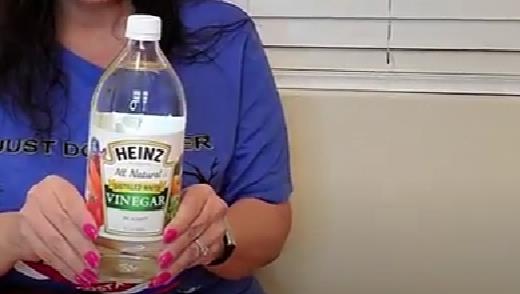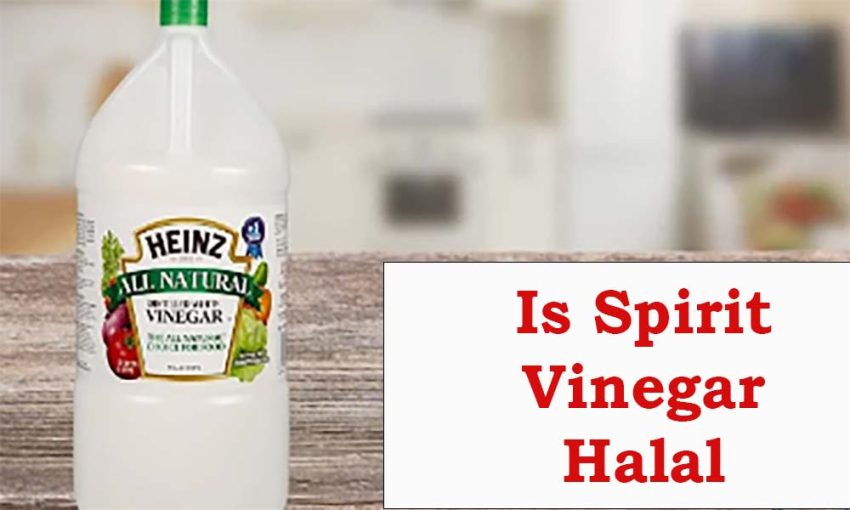Spirit vinegar is a common household item used in the kitchen, from pickling to dressing salads. However, for those following a halal diet, there may be concerns about the halal status of spirit vinegar. Halal is an Arabic word that means “permissible” and refers to practices allowed in Islamic law. So, is spirit vinegar halal?
Yes, spirit vinegar is usually considered halal. Because it is made by fermenting ethanol, a substance allowed on an Islamic diet.
In this blog, I will explore the halal status of spirit vinegar and how it is produced. By the end of this article, you will better understand whether or not spirit vinegar is halal and how it can be safely consumed as part of a diet.
What Is Spirit Vinegar?

Spirit vinegar is a type of vinegar that is made from distilled alcohol. It is a clear, colourless liquid with a sour taste and a pungent odour. It is commonly used in cooking, pickling, and as a cleaning agent. Spirit vinegar is made through fermentation, which converts alcohol into acetic acid.
Using Spirit Vinegar
One common use of spirit vinegar is in the production of pickles. Cucumbers are pre-soaked in a solution of vinegar, water, salt, and spices to make pickles. Spirit vinegar is often used in this process due to its clear color and neutral flavor, which allows the other flavors and spices to shine through. The vinegar’s acidity also helps preserve the pickles and prevent bacterial growth.
Another example of using spirit vinegar is in the production of mayonnaise. Egg yolks, oil, and vinegar are mixed to make mayonnaise. The vinegar helps to emulsify the ingredients and gives the mayonnaise its tangy flavor.
Is Spirit Vinegar Halal? The True Is Revealed
As a Muslim, it’s important to ensure that the food we eat and the things that go into it are halal. Which means they are allowed by Islamic law. One common ingredient in many foods is vinegar, but is spirit vinegar halal?
The answer is yes, as long as the distilled alcohol used in the fermentation process is not derived from grapes or dates. If the distilled alcohol is derived from other sources, such as corn or wheat, the resulting vinegar is considered halal.
It’s important to note that not all vinegar bottles are created equal. Some kinds of vinegar, such as wine or balsamic vinegar, may contain alcohol derived from grapes, making them haram or prohibited for Muslims to consume.
How Is Spirit Vinegar Made?
Halal spirit vinegar is made from the fermentation of dilute alcohol. Here are the basic steps involved in the production of spirit vinegar:
- Start with dilute alcohol: The starting material for making halal vinegar is a dilute solution of alcohol, typically derived from grains or other plant sources.
- Fermentation: The alcohol solution is then fermented using a special strain of bacteria called Acetobacter. These bacteria convert the alcohol into acetic acid, which gives vinegar its sour taste and pungent smell. The fermentation process usually takes several weeks to complete.
- Filtering and pasteurization: Once the fermentation is complete, the vinegar is filtered to remove any solids or impurities. It is then pasteurized to kill off any remaining bacteria and stabilize the acidity.
- Dilution: Finally, the vinegar is diluted with water to achieve the desired level of acidity, typically around 5%. This diluted vinegar is then ready for use.
To be considered halal, the alcohol used in vinegar production must be derived from halal sources. The fermentation process must be closely monitored to ensure that no other substances are added that would render the vinegar haram (forbidden).
How To Check If A Spirit Vinegar Product Is Halal Certified

To find out if a spirit vinegar product is halal certified, look for a sticker that says “halal certified” on the box. Usually, a well-known halal certification organization provides this sticker. It shows that the product has been checked to ensure it meets halal standards.
You can also look at the list of ingredients to see if the vinegar comes from safe sources. Most of the time, halal means that the vinegar is made from grapes or other vegetables. But if made with alcohol, it might only be kosher if it’s been through a process to get rid of the alcohol.
Call the manufacturer or the organisation certifying halal items to determine if a product is halal.
FAQ
The fact that spirit vinegar is halal can change from country to country based on where the alcohol comes from and how it is made. For example, vinegar made from wine is not considered halal in some countries but in others. Look up the rules in your area to ensure that the spirit vinegar you are drinking is halal. And you can talk to local Islamic experts.
There is a possibility that some spirit vinegar may be derived from non-halal sources such as wine, which is haram in Islam. Therefore, it is important to check the source of the vinegar and ensure that it is not derived from non-halal sources.
If you are still determining the halal status of vinegar, it is best to avoid consuming food products that contain it. It is always better to err on the side of caution and choose food products that have clear halal certification or are known to be halal.
Sum Up
In conclusion, we can tell that it is halal after looking at how spirit vinegar is made. Other types of vinegar, like wine vinegar, are made from boozy drinks. On the other hand, spirit vinegar is made by fermenting natural ingredients, like grain or fruit. Since it doesn’t have any booze, it is allowed to be eaten by Muslims according to their rules about food.
It is important to look at the list of chemicals on the box to ensure the product has no Haram or questionable ingredients. So, you don’t have to worry about whether or not Spirit is Halal when you use it for cooking, dressing, or pickling. In short, the answer to “Is spirit vinegar halal?” is a definite “yes.”
Read More:


2 thoughts on “Is Spirit Vinegar Halal? Know The Truth”